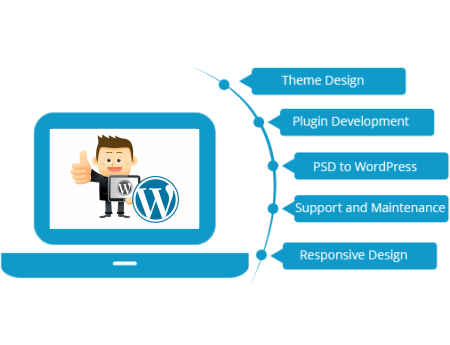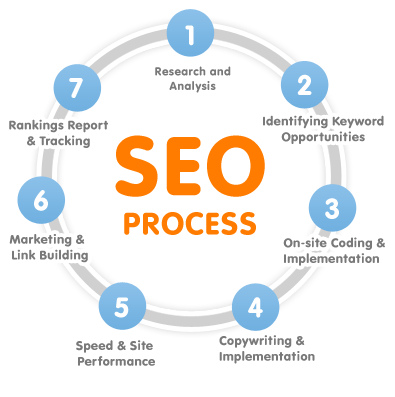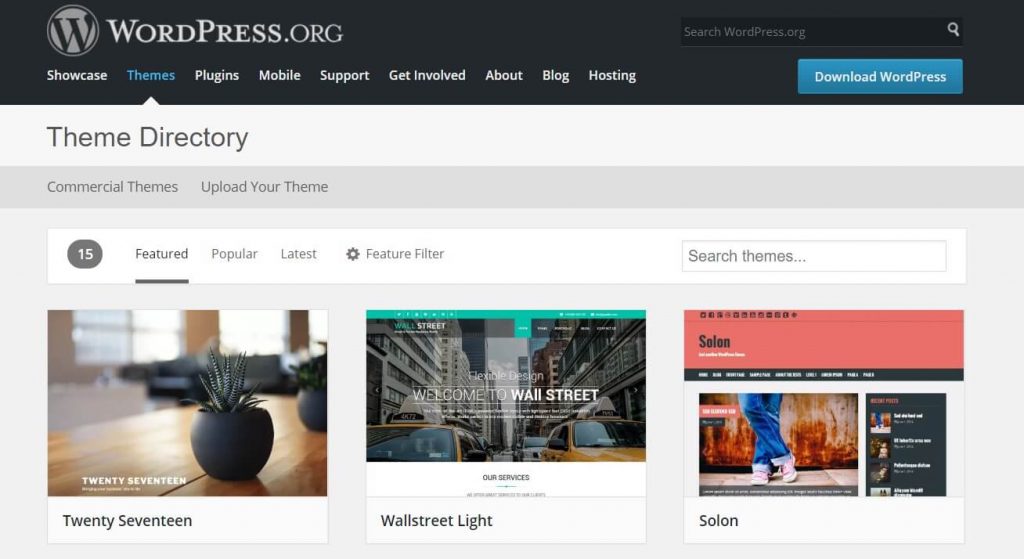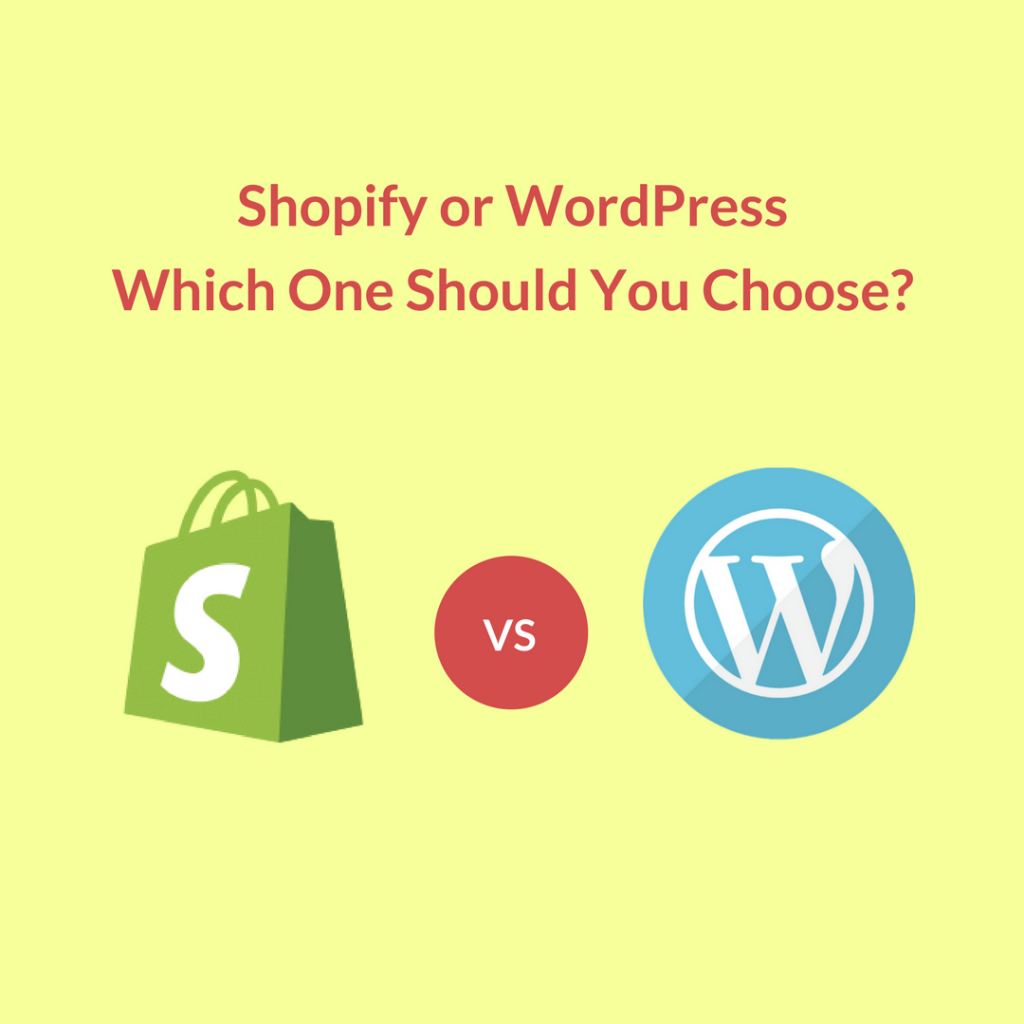19 Dec

Let’s discuss What is the difference between Shopify and WordPress
Shopify is a world renowned E-Commerce platform that helps you build your own online store easily because it hosts your website for you. Therefore, it powers over 600,000 online stores in total and is being used by major business celebrities.
Whereas,
WordPress is an open source content management system (CMS) that needs a separate hosting plan and an e-commerce plugin to start with. The most common plug in is Woocommerce. Moreover, this plugin is also open source. Apart from this , you can makes changes whenever you need but for this you should be a technical person too.
In Addition to this, both platforms Shopify and WordPress have their robust sides and flaws too. Instead of being trapped in detail, we also need to find out which fulfills with your needs and resources best. Therefore, Let’s take a look at differences between Shopify and WordPress.
SHOPIFY – what is it ?

Shopify is a website builder for which you don’t need to a have technical skills. Especially, being a self-hosted platform it allows you to start your own online store from scratch. Besides this it offers a simple, user-friendly way to get online too.
Also, Shopify provides a range of templates that can also be customized according to your needs without having any coding skills.
Furthermore, there is 24/7 phone service support available and plus all prices are clearly included in priced plans.
WORDPRESS – what is it?

WordPress being a CMS (content management system) helps you create, manage, and modify the contents of your website without the need for any HTML or CSS coding skills.
But WordPress is a little different. It comes in two versions:
- Hosted WordPress
- Self-hosted WordPress
1. Hosted WordPress:
Hosted WordPress is available at wordpress.com, it’s like Shopify. It allows you to create your own website. Moreover, you pay a monthly fee and you get access to a broad range of features which enable you to build and maintain a website.
2. Self-Hosted WordPress:
It is a software that you download from wordpress.org and then install on your own web server. Plus it’s an open-source, meaning that the code behind it is freely available and can also be easily changed according to you desire.
Positives and Negatives – SHOPIFY

Let’s just peek into some positives and negatives of Shopify.
POSITIVES:
- You don’t need to know coding or any technical skills for using Shopify.
- It is built for e-commerce websites, it have everything you need.
- You don’t have to pay for hosting or security externally.
NEGATIVES:
- You have to pay extra transaction fees unless you use Shopify’s own payment gateway.
- While changing your theme you need to reformat your content.
- It’s not still easy as Drag and Drop platform like WIX.
Positives and Negatives – WODPRESS
Let’s have a look into some positives and negatives of WordPress.
POSITIVES:
- It is more powerful and flexible than Shopify, allow for entire customization.
- It’s new ‘Gutenberg’ makes it slightly easier to use.
- There are vast amount of helpful resources online.
NEGATIVES:
- You also need to have technical knowledge to use this platform.
- It can get very expensive.
- You will need to source things like hosting and security and a domain name for your site.

How SHOPIFY helps you sell
Additionally, Shopify offers you significantly more free options. From the very start Shopify gives you:
- Unlimited product and unlimited file storage
- Embedded Oberlo integration
- Manual order creation and discount codes
- Blog module and fully featured mobile app
- Free SSL certificate and SEO-ready site structure
- Editable HTML and CSS
- Credit card payments and multiple languages
- Adjustable shipping rates and taxes
- Customer profiles
- Drop shipping capabilities
- Individual product reviews
- Physical and digital products in the store
- Unlimited traffic to your store and daily backups
- Site stats and product reports
- Product importing via CSV file and also different product variations
- Abandoned cart recovery and Print order
Similarly, Some of these free features, such as CSV uploads, shipping options, and bookings will charge you some amount with WooCommerce.

How WORDPRESS helps you sell
On the other hand WordPress being an open source software is known for allowing third party developers to create several extensions and plugins. While using WooCommerce:
- You can sell physical products, digital products (including software and apps), plus it’s also good for affiliate marketing
- Payments via PayPal and Stripe built-in (plus a range of other gateways available for an extra fee)
- Adjustable shipping rates and taxes
- Unlimited number of products and product categories
- Stock levels control also
- Mobile-friendly structure
- Plus you also have complete control over your data
- Works with your current WordPress theme
- Literally hundreds of plugins (extensions) available too
- A free Facebook ad and Facebook stores extension

Managing Content and SEO
WordPress have more advantages in content management. Also, it stores versions of pages and posts that can be rolled back anytime. Meta descriptions and URLs can be improved for getting Google. Apart from this, for better SEO performance you have to install plugins to your WordPress store. In fact , blogging option for WordPress is much stronger.
Furthermore, Shopify offers content structuring and navigation to match the customer’s search. The platform have built-in SEO. Also, you can add Google Analytics in the “Preferences” section on the user dashboard.

Templates – Quality and Quantity
Hence, the main concern of anyone building a website is “Will my website look professional?” Well, Shopify also offers a stylish yet elegant set of templates. However, there are 10 free and 61 paid templates available in Shopify theme store. Plus most of the templates have 2-3 variants. Moreover, all of the themes are professionally designed which can easily be edited and are responsive too.

Whereas, there are huge number of templates available at WordPress also. The total quantity of themes available ensure most users will have plenty of high quality options to choose from. Furthermore, WordPress templates contain horrible code which can compromise the security of your site. Similarly , this is not something you really need to worry about at all with Shopify templates, as long as you buy your template from the official Shopify theme store.

Customer help and support
Shopify provides 24/7 customer support service via phone, email and live chat. Thus, it can help you out in very less time to resolve your problems.
However, WordPress is different in this way as there is no direct help. Hence, there are only resources, such as forum that provide support.

Conclusion
WordPress is extremely flexible. Therefore, you can get lot of controls of your website. But it comes completely blank. You have to do all on your own from hosting, theme, online store inventory management and payments processors etc. Furthermore, it have significantly huge user based and much great selection of themes and app to choose. Also, you can built any type of website with WordPress because it’s more advanced platform.
Additionally, Shopify meets the need of e-commerce user better and particularly those who have no technical skills. Therefore, Since the software is managed by the company you don’t need to worry about anything. As well as everything such as hosting , payment provider and even blogging platform is also provided out of the box.

To summarize , if you have limited technical knowledge and you also want to build your own online store. Then Shopify is what you need because it’s easy to maintain the budget as all the pricing are included in their pricing plans.
But if you have some knowledge of coding and a have good budget to pay for developer’s help. Than you can go for WordPress. You will get total control over your website. However, you will need to pay a lot for a top ecommerce site.
In the final analysis ,ultimately it’s upon you to choose Shopify OR WordPress based upon your budget and skills too.
